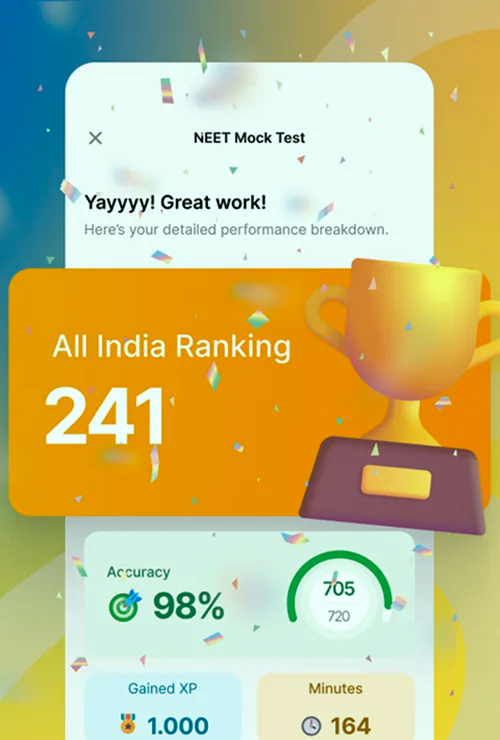General Information
The University of Delhi, commonly known as Delhi University (DU), is a premier public Central University located in New Delhi. It was established in 1922 by an Act of the Central Legislative Assembly and is recognized as an Institution of Eminence (IoE) by the Government of India.
As a collegiate research university, its structure is twofold:
On-Campus Departments/Faculties: It has 16 faculties and over 80 academic departments, primarily located on its North Campus (the main campus) and South Campus, which focus on postgraduate teaching and research.
Affiliated/Constituent Colleges: It has 91 colleges spread across Delhi that offer undergraduate (and some postgraduate) courses. These colleges, like St. Stephen's, Hindu College, Shri Ram College of Commerce (SRCC), Lady Shri Ram College (LSR), and Miranda House, are constituent units of the university, which sets their curriculum and awards their degrees.
Key Recognitions & Rankings
Type: Central University, Institution of Eminence (IoE)
Recognition: University Grants Commission (UGC)
NAAC Grade: A++
NIRF Ranking (2024/2025): Highly ranked, often placing in the top 15 in the 'Overall' category and the top 10 in the 'University' category nationally. Its constituent colleges (like Miranda House, Hindu, SRCC) consistently dominate the top 10 college rankings.
MCI Recogination
Recognized for 150 seats. Permitted for increase of seats from 150 to 170 under EWS quota (103rd constitution amendment) for 2019-20. Annual renewal permission granted for 170 MBBS seats for AY 2024-25.
Campus Facilities
Campus & Infrastructure
The university is primarily spread across two main campuses:
North Campus (Main Campus): Located in the heart of old Delhi, this is the university's traditional center. It's a large, sprawling area that houses the main administrative block, the Vice-Chancellor's office, the iconic Arts Faculty, the Central Library (Ratan Tata Library), and several prominent colleges (St. Stephen's, Hindu, Ramjas, Kirori Mal, Miranda House, SRCC).
South Campus: Established in 1973 in South Delhi (Benito Juarez Marg) to serve students in that part of the city. It has its own administrative block, library, and postgraduate departments, and is close to other top colleges like Sri Venkateswara College and Jesus & Mary College.
Facilities: The university system has 34 libraries (including the Central Library Complex), extensive hostel facilities, health centers, bank/ATM facilities, canteens, auditoriums, and a large, well-equipped sports complex with grounds for cricket, football, tennis, and more.
Hospital & Medical Facilities
Leading tertiary care hospital attached to the institution
Healthcare & Medical Education (MBBS)
It's important to note that Delhi University does not have its own medical college or hospital directly on its North or South campus.
Instead, its Faculty of Medical Sciences (FMSC) acts as the affiliating university for some of India's most prestigious government medical colleges. The university conducts their exams and awards the MBBS/MD/MS/BDS degrees.
Affiliated Medical Colleges:
Maulana Azad Medical College (MAMC)
Associated Hospitals: Lok Nayak Hospital, GB Pant Institute of Postgraduate Medical Education & Research (GIPMER).
Lady Hardinge Medical College (LHMC)
Associated Hospitals: Smt. Sucheta Kriplani Hospital, Kalawati Saran Children's Hospital.
University College of Medical Sciences (UCMS)
Associated Hospital: Guru Teg Bahadur (GTB) Hospital.
Affiliated Dental Colleges:
Maulana Azad Institute of Dental Sciences (MAIDS)
Fee Structure
State University Affordability
Fee Structure
Fees at DU vary dramatically.
Aided Courses (On-Campus & Govt. Colleges): Fees for traditional, government-aided courses (like BA, B.Com, MA, M.Sc, LLB) are extremely low and highly subsidized, often ranging from ₹4,000 to ₹20,000 per year.
Self-Financed Courses: Fees for self-financed courses are much higher.
B.Tech (On-Campus): Approximately ₹10 Lakhs (Total 4-year fee).
MBA (FMS): Famously low, around ₹2 Lakhs (Total 2-year fee).
BA/BBA LLB (On-Campus): Approximately ₹2 Lakhs (Per Year).
Medical (Affiliated): Fees at the affiliated government medical colleges (MAMC, UCMS, LHMC) are also very low for the 85% Delhi Quota, typically around ₹4,000 - ₹15,000 per year.
City Details
Hostel & Mess
Hostel & Mess Fees
Availability: Hostels are available at both North and South campuses for postgraduate students, and many individual colleges (like Hindu, St. Stephen's, LSR, Miranda House, SRCC) have their own hostels for undergraduate students.
Cost: Hostel fees are also subsidized but vary. Annual charges (including mess, electricity, etc.) can range from ₹50,000 to ₹1,50,000 or more, depending on the specific hostel and facilities.
Miscellaneous
Admissions & Career Pathways
Admission Process
Admissions to almost all courses at Delhi University are now streamlined through national-level entrance tests.
Undergraduate (BA, B.Sc, B.Com, BBA, etc.): Admission is exclusively based on the scores obtained in the Common University Entrance Test (CUET-UG), conducted by NTA. After the CUET results, candidates must register on DU's Common Seat Allocation System (CSAS) portal for counselling and college allotment based on their CUET scores and preferences.
Postgraduate (MA, M.Sc, M.Com, etc.): Admission is exclusively based on scores from the CUET-PG.
B.Tech: Admission is based on the rank obtained in the JEE (Main) Paper-1.
MBA (FMS): Admission is based on CAT scores, followed by GD/PI.
Law (BA/BBA LLB & LLM): Admission is based on the CLAT score (Common Law Admission Test).
Law (3-Year LLB): Admission is based on CUET-PG (LLB) scores.
MBBS / BDS (Affiliated): Admission is strictly based on NEET-UG rank, followed by counselling conducted by the Medical Counselling Committee (MCC) for 15% All India Quota and 85% Delhi Quota (for students who completed 11th & 12th in Delhi).
Placements
Placements vary significantly between on-campus departments and affiliated colleges.
On-Campus (MBA/B.Tech):
FMS (MBA): Has one of the best ROIs in India. Placements are outstanding, with the average package often exceeding ₹30 LPA and the highest packages reaching ₹1 Crore+ (domestic).
B.Tech: As a relatively new program, placements are growing, with a reported median package around ₹8.0 LPA.
Top Colleges (SRCC, LSR, St. Stephen's, etc.): These colleges have extremely strong placement cells. Top consulting firms (Bain, McKinsey), finance companies (Deloitte, KPMG, EY, PwC), and major corporations recruit heavily.
LSR/SRCC/SSCBS: Often report highest packages in the ₹35 LPA - ₹49 LPA range, with average packages for commerce/economics/BMS ranging from ₹8 LPA to ₹12 LPA.
Information for NRI / Foreign Nationals
Delhi University has a dedicated Foreign Students' Registry (FSR) that handles admissions for international students.
Collage Images Gallery
Facilities & Campus Life
Well-equipped Library
Experienced Faculty
Computer Lab
Sports Activities
Heritage Campus
Frequently Asked Questions
Why Consult With Us?
- 15+ years of experience in medical education counseling
- 5000+ students successfully guided
- 50+ partner universities worldwide
- Free initial consultation with no obligation














